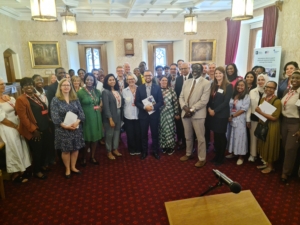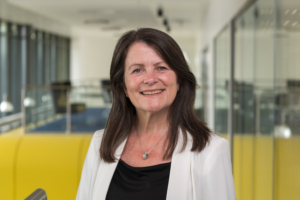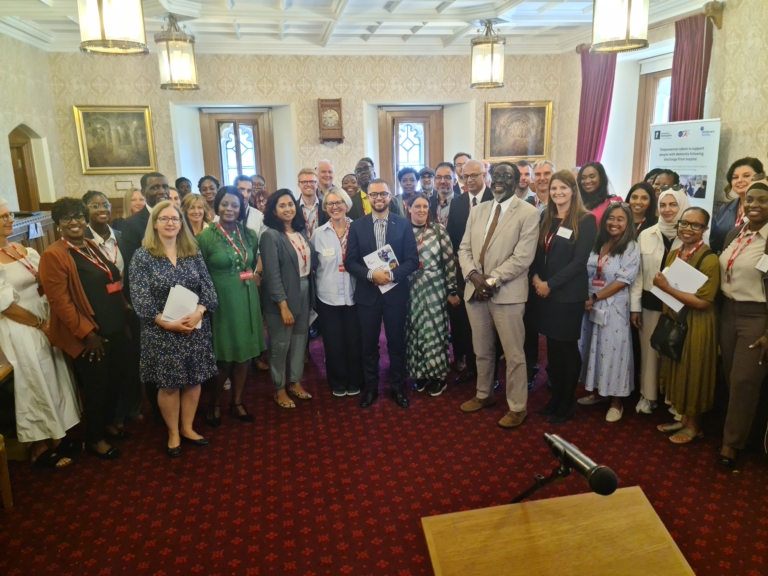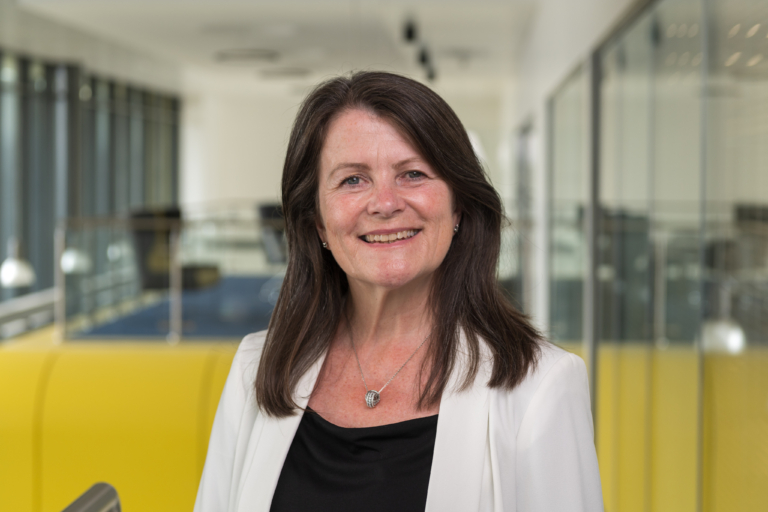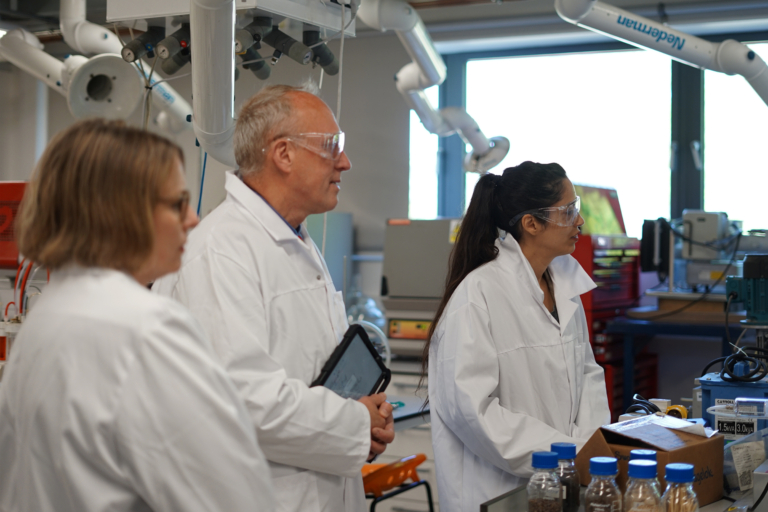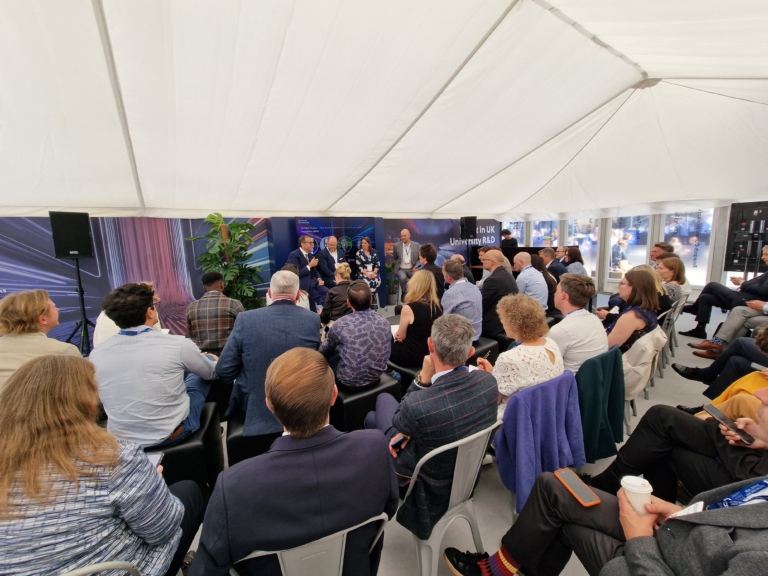Researchers from the arts, humanities and social sciences are helping to shape the future of MI’s Inclusive Transformation research programme.
Research leads undertaking collaborative projects which are supporting Midlands communities recently took part in the third MI Inclusive Transformation Conference at Loughborough University to discuss how to scale-up future research opportunities.
The MI Inclusive Transformation programme, which has been running for three years, has delivered 15 collaborative research projects to date. These range from the public sector to SMEs, and community gardening initiatives to support peoples’ mental health to assessing the effectiveness of alternative education provision for children.

Professor Dan Parsons of the Midlands Innovation Executive Management Group opens the 2024 Inclusive Transformation Conference
The interdisciplinary projects demonstrate the benefits of cross-collaboration between MI’s eight university partners, with the partnership deploying innovative use of Research England’s policy support funds to provide seed funding for the collaborative research projects. Described by Professor David Sweeney, the Executive Director of Research England at the time of the first MI Inclusive Transformation Conference in 2021, as being “clear there is a real desire for collaboration and a commitment to addressing issues across the Midlands and beyond.”
The projects are formed through interdisciplinary research proposals which give academics from across the partnership, together with their external collaborators and communities, the opportunity to co-create research that makes an impact within diverse local communities across the Midlands.

Professor David Amigoni from Keele University, Chair of the steering group which oversees the Inclusive Transformation Research Programme, said: “As a pan-regional research partnership we’re providing arts, humanities and social science researchers with a platform to undertake collaborative place-based research projects.
“These projects demonstrate the broad spectrum of research, and more importantly, the differences they are making to local people, communities and local organisations.
“We now want to utilise what our research leads have learned to explore how we can now scale-up the programme.”
To help spark the discussions on the future development of MI’s Inclusive Transformation, the conference heard from Professor Mark Monaghan about Loughborough University’s Living Well Inquiry which is tapping into the expertise across Loughborough’s two campuses to examine what living well means in the 21st Century. Its aim is to provide policy-focused recommendations which support people to live well. Researchers also heard from Professor Mark Williams, Professor of Palaeobiology at the University of Leicester. He spoke about the Anthropocene – a proposed geological concept which describes that humans are the main driver of changes to the earth system.

Professor Williams utilised geological research findings from projects involving the River Soar in Leicestershire as a way of demonstrating the impact that humans have had on their natural surroundings from the industrial revolution, the introduction of leaded petrol, as well as the planting of invasive species which have the potential to threaten natural plants and woodland. After the event he said: “I was delighted to speak to the Inclusive Transformation research leads. We discussed the synergies and opportunities that the Anthropcene concept could provide when considering how to scale-up the inclusive transformation research programme. One route could be to do it in a way that supports the environment while helping communities to learn more and to reconnect with their natural surroundings.”
Professor Dan Parsons, Pro-Vice-Chancellor for Research and Innovation at Loughborough University, opened the conference on behalf of the Midlands Innovation Executive Management Group. He said: “The Midlands is full of contradictions; we have some of the most diverse and some of the least diverse communities in the country; we also have areas of high and low wealth. Our research community has the expertise, capability and desire to help address deep-rooted economic and societal changes through our research”
“Inclusive Transformation is MI’s first interdisciplinary research programme in the arts, humanities and social sciences, and myself and the MI Executive Management Group are excited by the potential to explore the possibilities of scaling up this research programme for the benefit of all in the Midlands.”
Published 3 June 2024
